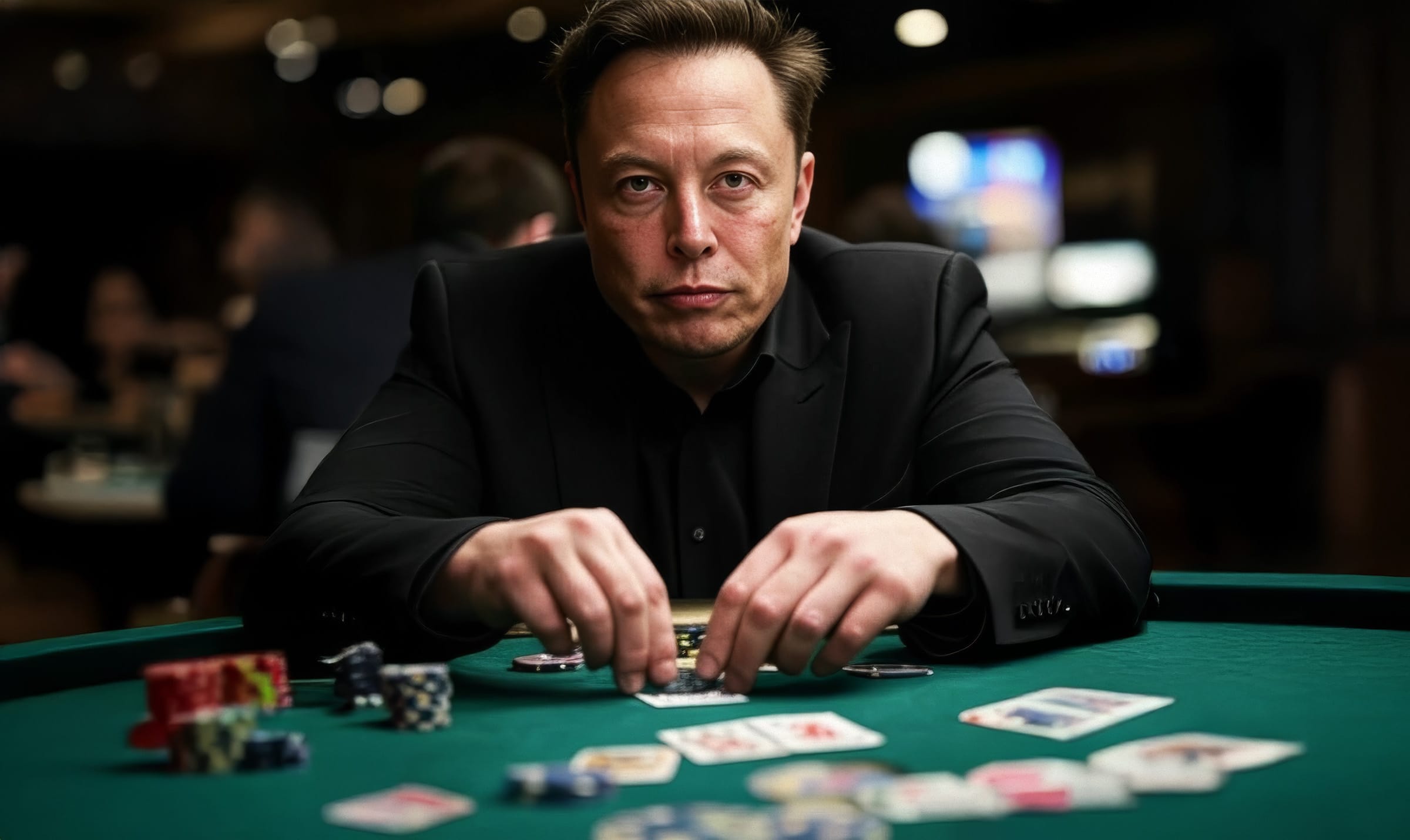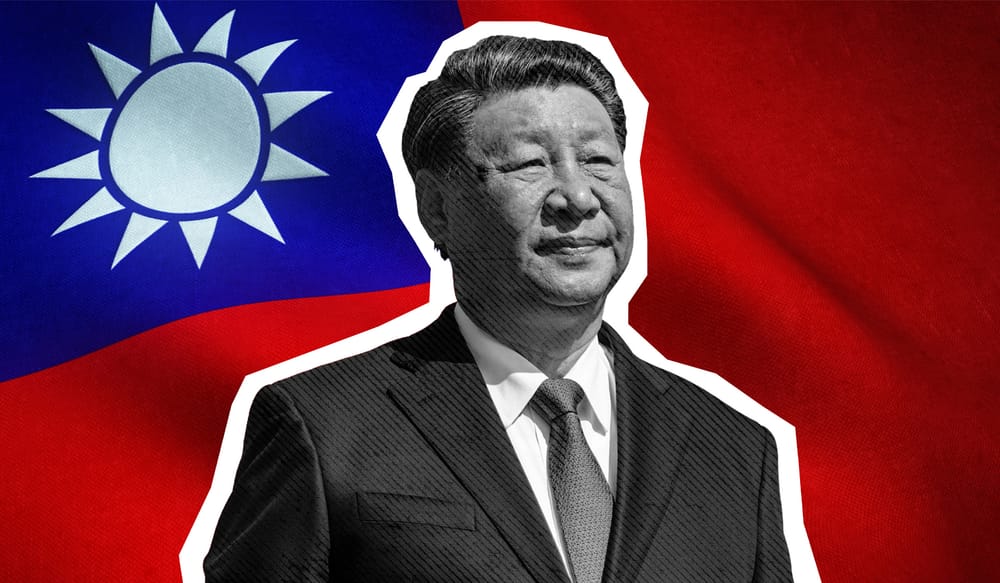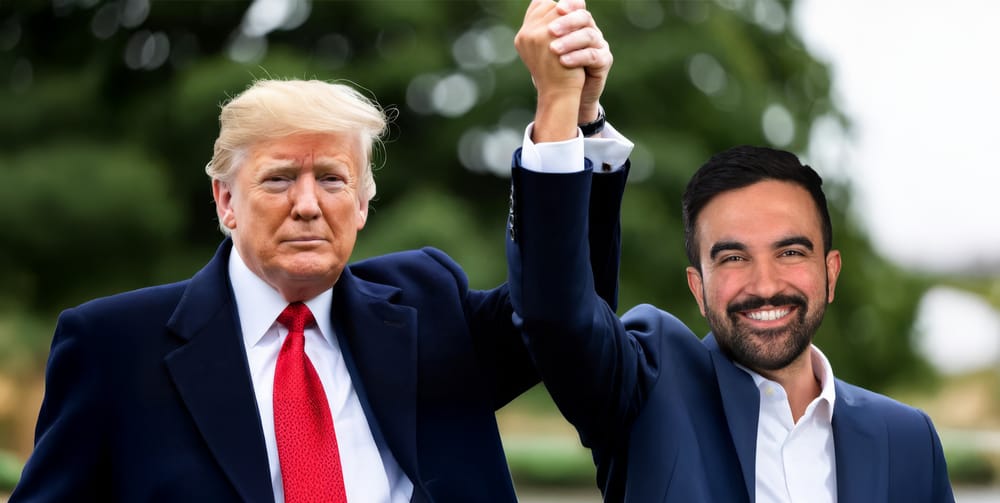Witnessing the falling out between Trump and Musk likely few people were surprised that the relationship came to an end – but I think nobody expected it would happen quite so quickly and spectacularly.
In fact, even as the world's richest man was bidding goodbye to DOGE and his involvement with the administration, he was handed a parting gift of a golden key to the White House, as a token of gratitude.
It was a PR gesture, of course, probably to cover up a deeper rift, but Musk's willing participation suggested that no dirty laundry would be aired in public.
So, what was it that prompted him to lash out at Trump and his bill just days later?
Steve Bannon, Trump's former ally, suggested drug use (or abuse, as reported earlier by New York Times) as the reason for his erratic behaviour. And while it may be explain his impulsive reactions and controversial rants on X, it doesn't tell us much about the source of his frustration.
Buying the White House
Trump accused Tesla's CEO of being upset about the cancellation of the generous Biden-era EV mandate, which included a $7,500 credit for buyers of new electric cars.
And while Musk did denounce the subsidy last year as unnecessary for his company, the mood may have shifted in 2025 amid falling sales. In fact, Tesla Energy put out a statement defending tax credits two weeks ago, and calling their withdrawal a threat to America's energy independence:

Musk himself later chimed in, noting that only EV & solar industries are affected, while fossil fuels are still going to "unfairly" receive government support.
However, while it seems that it may have been the straw that broke the camel's back, the real reason for Musk's outbursts must be deeper.
After all, all EV makers are currently struggling, as demand for electric cars has slowed down globally following the initial surge driven by early adopters.
Tesla might actually be in a better situation than traditional car companies, which have made huge investments into the transition to electric mobility, that are yet to pay off, while still trying to figure out what to do about petrol cars amid uncertain regulatory rules that may kill that market for good in the coming decade.
It looks like the real cause of Musk's anger is disappointment that his support for Trump bought him far less influence than he wanted.
A South African by birth Elon can't contest American presidency. But the humongous wealth he commands allows him to acquire leverage that he seems to have hoped would translate into real impact on US politics.
“I can’t be president, but I can help Trump defeat Biden and I will.” - New York Times reported two weeks ago
Further indication of his ambition may have been revealed amid the tit-for-tat with Trump, when he posted a poll asking his X followers about whether a new political party is needed in America:

Doesn't it imply that he didn't get what he wanted out of Trump's administration, that he so eagerly became a part of just a few months ago?
He further attacked the US president suggesting he wouldn't have won without his support – including $300 million in donations, making him the single largest contributor to the campaign.
More than money, however, which despite such a large sum amounted only to about 20% of all of the campaign's expenses, it was his name and celebrity status as the world's wealthiest man and most successful entrepreneur that likely boosted Trump's chances.
On the other hand, however, they competed against one of the weakest duos ever to have been fielded by the Democratic party – the dithering Joe Biden, who had to drop out in the middle of the race, followed by cackling Kamala (neither with much to show for themselves).
With a country reeling from painful inflation and relentless waves of illegal immigrants, and a society no longer spooked by the pandemic (unlike in 2020), could Trump really have lost even without Elon's support?
Probably not. Maybe his victory wouldn't have been as decisive and the Republican Party would have secured even slimmer majorities in Congress, but the wave was firmly against the Democrats in 2024.
That said, Musk made a rookie mistake that ended up costing him his investment. Unlike RFK Jr., who dropped out and endorsed Trump in exchange for a seat in the cabinet, Elon failed to secure what he wanted as a condition for his support.
Perhaps he believed that his own status and wealth provided him much stronger cards that he could play against the new White House when needed. Or that indebted Trump would always pick the phone up.
In the end, he got his DOGE and a quasi-official position in charge of it, which came with limited prerogatives and whose work is still contingent on getting codified into law by Congress in conflict.
Meanwhile, as Trump is ineligible for re-election, he has little to lose. He has already won, there isn't much that Musk can offer him anymore.
On the contrary, it's the richer of the two billionaires who now depends entirely on what the administration decides to do, so he should play nice lest Trump decides to exact revenge, which could hurt Musk's business empire.
Perhaps Elon was convinced Trump owed him, but it's clear that the feeling isn't mutual. And in the clash of two massive egos, the one with the stronger cards prevailed.
Musk overplayed his hand. He should have demanded more before the votes were cast in November. That's when he had the advantage. But once Trump emerged victorious, he no longer needed to make concessions.
And when reality struck, the only thing left for the richest man in the world was to vent his frustration on social media.









